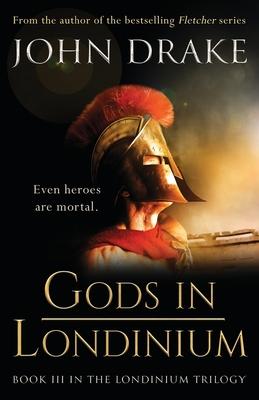Ikaros of Apollonis is a slave of the Roman Empire. But in the heathen wilds of Britannica, he may be about to save it.
His home city conquered, Ikaros of Apollonis, an engineer and physician, is now the slave of a Roman soldier. But his master is no ordinary soldier, and Ikaros is far from an ordinary slave.
In a characteristically Roman blend of pragmatism and superstition, he is widely admired - and feared - for his striking intelligence and ability to read minds.
So, who else would the empire choose to investigate the death of a hero, the spread of a strange religion, and a potential uprising among the native Celtic tribes?
In Gods in Londinium, Ikaros navigates the tensions between Britannica's Celts and its Roman occupiers, defying attempts on his own life and those of the people he loves. In doing so, he's drawn into negotiations that may spell the end of Roman Britain - or perhaps, quite the reverse.
Gods in Londinium gives its readers a fascinating and well-informed glimpse into life in Roman Britain. It's a must-read for fans of John Drake's other works, including Death in Londinium and Games in Londinium, and will delight readers with an interest in ancient history, as well as those who simply enjoy a good story, compellingly told.
John Drake trained as a biochemist and pursued this until 1999, when he became a full-time writer of historical fiction. He has written many popular novels, including a prequel to Treasure Island called Flint and Silver. He is married, and has a son and two grandchildren.
